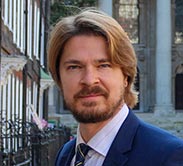Martin Ricketts
Martin Ricketts is Emeritus Professor of Economic Organisation at the University of Buckingham and is Chairman of the IEA’s Academic Advisory Council. A graduate of the University of Newcastle upon Tyne (1970) he has a DPhil from the University of York (1980). He was a Research Economist at the Industrial Policy Group (1970-72) and a Research Fellow at the Institute of Social and Economic Research, University of York (1974-77). He joined the academic staff of the University of Buckingham in 1977 becoming Dean of the School of Accounting, Business and Economics (1993-97) and then Dean of the School of Humanities (2002-2015). He has published in professional journals on the new institutional economics, the theory of the firm, entrepreneurship, public choice, aspects of public finance and housing policy. He has authored books on Business Enterprise and Ownership Structure, and co-authored books on the Economics of Energy and Government and Industry.
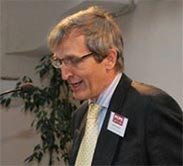
Philip Booth
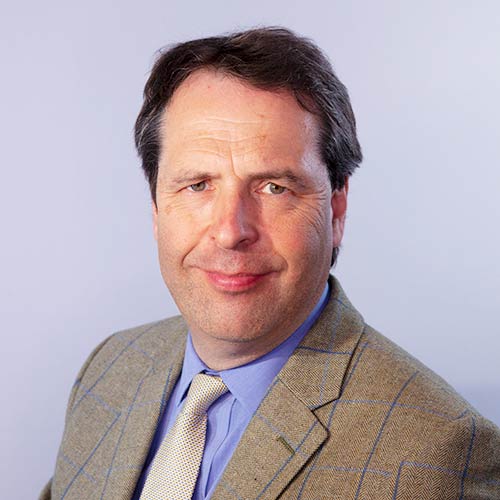
Philip Booth is Director of Catholic Mission and Professor of Finance, Public Policy and Ethics at St. Mary’s University. He is also Director of Policy and Research at the Catholic Bishops’ Conference of England and Wales.
Before that he was Director of the Vinson Centre for the Public Understanding of Economics and Entrepreneurship at the University of Buckingham. From 2002 to 2016, Philip was academic and research director at the Institute of Economic Affairs and senior academic fellow there from 2016 to 2021. Previously, Professor Booth has worked for the Bank of England and as associate dean of the Cass Business School. He has written widely on investment, finance, social insurance, and pensions, as well as on the relationship between Catholic social teaching and economics. His books have included Catholic Social Teaching and the Market Economy. Professor Booth is a fellow of the Royal Statistical Society, a fellow of the Institute of Actuaries, and an honorary member of the Society of Actuaries of Poland. He has previously worked in the investment department of Axa Equity and Law and has been involved in a number of projects to develop actuarial professions and actuarial, finance, and investment professional teaching programs in Central and Eastern Europe. Professor Booth has a B.A. in economics from the University of Durham and a Ph.D. from City University.
Geoffrey Wood
Geoffrey Wood is Emeritus Professor of Economics at City University Business School in London and Emeritus Professor of Monetary Economics at the University of Buckingham. A graduate of Aberdeen and Essex Universities, he has worked in the Federal Reserve System and the Bank of England. Overseas he has advised several central banks and national treasuries. He is an adviser to several financial institutions, two pension funds, was an adviser to the Treasury Select Committee of the House of Commons, and to the Parliamentary Banking Commission until the Commission ceased to exist on the publication of its report. He has authored, co-authored, or edited over thirty books, and has published over 100 academic papers. His fields of interest are monetary economics, monetary history, and financial regulation.
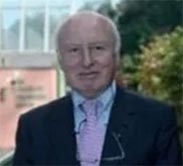
Nigel Ashford
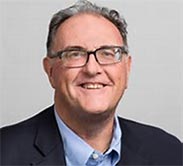
Professor Ashford is Senior Programme Officer at the institute for Humane Studies at George Mason University, Virginia. He joined IHS from the United Kingdom where he was professor of politics and Jean Monnet Scholar in European Integration at Staffordshire University. He directed the Principles for a Free Society Project at the Jarl Hjalmarson Foundation in Sweden and was a Bradley Resident Scholar at the Heritage Foundation and Visiting Scholar at the Social and Philosophy Policy Center in Bowling Green. He is a recipient of the International Anthony Fisher Trust Prize for published work which strengthens public understanding of the political economy of the free society.
Professor Ashford was also Chairman of the American Politics Group of the United Kingdom. He has lectured in over 16 different countries and is the author of Principles for a Free Society. He is co-author of US Politics Today, Public Policy and the Impact of the New Right, and A Dictionary of Conservative and Libertarian Thought, and numerous articles on how ideas influence US politics.
He participates in many IHS events. His primary role is to help students become university professors.
Deirdre McCloskey
Deirdre Nansen McCloskey is Distinguished Professor Emerita of Economics and of History, and Professor Emerita of English and of Communication, adjunct in classics and philosophy, at the University of Illinois at Chicago. Trained at Harvard in the 1960s as an economist, she has written twenty-four books and some four hundred academic and popular articles on economic history, rhetoric, philosophy, statistical theory, economic theory, feminism, queer studies, liberalism, ethics, and law. She taught 1968–80 at the University of Chicago in the Economics Department during its glory days, but now describes herself as a “literary, quantitative, postmodern, free-market, progressive-Episcopalian, ex-marxoid, Midwestern woman from Boston who was once a man. Not ‘conservative’! I’m a Christian classical liberal.”
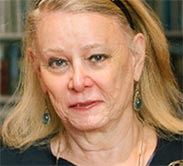
Phillip Magness
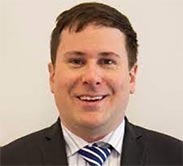
Professor Magness is an economic historian whose work focuses on the United States and the broader Atlantic world. His research explores the intersection of history and political economy, including the 19th century as well as longer term trends in the macroeconomy such as taxation trade and economic inequality. He also works on the political economy and business of higher education. Magness is currently the director of Research and Education at the American Institute for Economic Research in Great Barrington, Massachusetts. His scholarship has appeared in outlets including the Journal of Political Economy, the Economic Journal, and Economic Inquiry. His popular writings have appeared in the Wall Street Journal, Newsweek, Politico, Reason Magazine, National Review, the Chronicle of Higher Education, and the New York Times.
Gabriel Calzada
Dr Calzada is the founder and president of the Instituto Juan de Mariana, a libertarian think tank based in Spain. He has been the Rector of Universidad Francisco Marroquin in Guatemala (2013-2021), Associate Professor of Economics at King Juan Carlos University in Spain since 2004 and Deputy-Director of the academic journal ‘Procesos de Mercado’. He has been a Rowley Fellow at the Ludwig von Mises Institute, and is also a Fellow at the Centre for the New Europe. He is the president of the Mont Pelerin Society since 2022.
He frequently appears on television broadcasts and has written for a variety of publications.
He is founder of the Universidad de las Hespérides, a classical liberal orientated university in the Canary Islands.
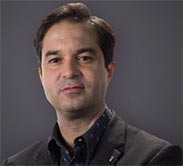
Vernon Smith
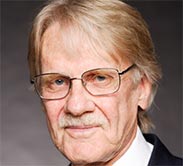
Professor Smith was awarded the Nobel Prize in Economic Sciences in 2002 for his ground-breaking work in experimental economics. He is a professor of business economics and law at Chapman University. Smith is the founder of the International Foundation, a Member of the Board of Advisors for The Independent Institute and a Senior Fellow at the Cato Institute. The Vernon Smith Centre for Experimental Economics at the Universidad Francisco Marroquin is named in his honour.
Professor Smith has authored or co-authored more than 375 books and articles, many on the topic of experimental economics, a disciple for which he can be seen as founder. Particularly notable papers in this field include: ‘An Experimental Study of Competitive Market Behavior’ (1962), ‘Experimental Auction Markets and the Walrasian Hypothesis’ (1965), ‘Experimental Economics: Induced Value Theory’ (1976), ‘Papers in Experimental Economics’ (1991), and ‘Bargaining and Economic Behaviour: Essays in Experimental Economics’ (2000).
Lawrence White
Professor White is a specialist in the theory and history of banking and money. He is the author of ‘The Clash of Economic Ideas’ (2012), ‘The Theory of Monetary Institutions’ (1999), ‘Free Banking in Britain’ (2nd ed., 1995), and ‘Competition and Currency’ (1989); his most recent book is ‘Better Money: Gold, Fiat, or Bitcoin?’ (2023). His articles on monetary theory and banking history have appeared in the American Economic Review, the Journal of Economic Literature, the Journal of Money, Credit, and Banking, and other leading professional journals. In 2014 he received the Adam Smith Award of the Association for Private Enterprise Education. He has been a visiting research fellow at the American Institute for Economic Research, a visiting lecturer at the Swiss National Bank, and a visiting scholar at the Federal Reserve Bank of Atlanta. Professor White is a co-editor of Econ Journal Watch and a member of the board of associate editors of the Review of Austrian Economics. He is a Distinguished Senior Fellow of the F. A. Hayek Program for Advanced Study in Philosophy, Politics and Economics of the Mercatus Center at George Mason University, and a senior scholar of the Cato Institute Center for Monetary and Financial Alternatives. He is a Professor of Economics at George Mason University.
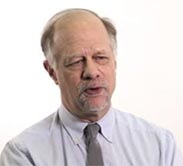
James Tooley
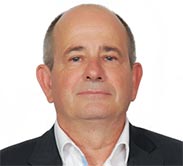
Professor Tooley was the Vice Chancellor of the University of Buckingham, the UK’s first private university. Before taking up this post, he was the world’s leading expert on low-cost private education.
Professor Tooley’s ground-breaking research on low-cost private education has won numerous awards; including gold prize in the first International Finance Corporation/Financial Times Private Sector Development Competition, a Templeton Prize for Free Market Solutions to Poverty, and the National Free Enterprise Award from the Institute of Economic Affairs, London.
Professor Tooley has co-founded chains of low-cost schools in Ghana (Omega Schools), India (Cadmus Education), Honduras (Cadmus Academies) and, most recently, in England (Independent Grammar Schools). He is also involved with large associations of low-cost private schools, including as Patron of the Association of Formidable Educational Development (Nigeria) and Chief Mentor of the National Independent Schools Alliance (India).
Kristian Niemietz
Kristian previously worked as a Research Fellow at the Berlin-based Institute for Free Enterprise (IUF), and at King’s College London, where he taught Economics throughout his postgraduate studies.
He is the author of the books A New Understanding of Poverty (2011), Redefining the Poverty Debate (2012), Universal Healthcare Without The NHS (2016) and Socialism: The Failed Idea That Never Dies (2019).
